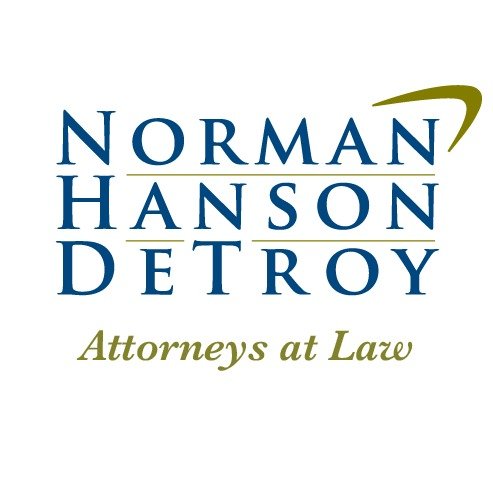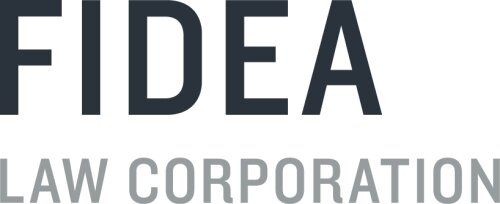Best Licensing Lawyers in United States
Share your needs with us, get contacted by law firms.
Free. Takes 2 min.
Or refine your search by selecting a city:
List of the best lawyers in United States
United States Licensing Legal Questions answered by Lawyers
Browse our 1 legal question about Licensing in United States and read the lawyer answers, or ask your own questions for free.
- How do I legally protect my idea before selling or licensing it to a company?
- I have a makeup product idea that I want to sell or license, not the product itself. It is influenced by a product that was recently launched. Therefore, I want to sell/license to the company that launched said product. After some research, I contacted a patent attorney who explained that... Read more →
-
Lawyer answer by P.O OHIKHENA & Co
Good day,A patent will not be applicable since it's still an idea. You can go into an MOU(Memorandum of understanding) with the said company and also an NDA.You can contact me for my insight. Visit our profile and send us...
Read full answer
About Licensing Law in United States
Licensing law in the United States governs the granting of permissions to individuals or organizations to engage in specific activities that are otherwise restricted. This can range from professional and occupational licenses, such as those needed to practice law or medicine, to business licenses necessary for operating certain types of businesses. Additionally, it includes intellectual property licenses that allow one party to use another's intellectual property under agreed terms. Licensing ensures that individuals and businesses comply with standards and regulations designed to protect public health, safety, and welfare.
Why You May Need a Lawyer
Legal assistance in licensing may be required in various situations such as:
- When applying for or renewing a professional or business license and navigating complex regulatory requirements.
- If your license is revoked, suspended, or denied, a lawyer can help to appeal or resolve issues with regulatory bodies.
- Drafting or negotiating licensing agreements, especially those involving intellectual property rights.
- Ensuring compliance with local, state, and federal regulations to avoid hefty fines or legal actions.
- In disputes arising from licensing agreements, such as breaches or interpretations of the terms.
Local Laws Overview
Licensing laws can vary significantly from one jurisdiction to another within the United States. Key aspects often involve:
- State-Specific Requirements: Each state has its own set of rules concerning which professions require licenses and the standards for obtaining them.
- Municipal or County Ordinances: Local governments may impose additional licensing requirements on businesses operating within their areas.
- Federal Regulations: Certain industries, such as aviation or nuclear energy, are subject to federal licensing under agencies like the FAA or NRC.
- Intellectual Property: Federal laws largely govern intellectual property licenses, particularly with respect to patents, trademarks, and copyrights.
Frequently Asked Questions
What is the purpose of a license?
Licenses serve to grant permission to perform regulated activities while ensuring public safety and compliance with legal standards.
Do I need a business license to operate my own sole proprietorship?
Requirements vary by location and industry, but generally, most businesses need to register or obtain licenses to legally operate.
Can a professional license be used across state lines?
Usually no, as most professional licenses are state-specific, but some professions have reciprocal agreements or compacts between states.
How long does it take to obtain a license?
The time varies considerably depending on the type of license, completeness of the application, and the efficiency of the issuing authority.
What are the consequences of operating without a required license?
Potential consequences include fines, legal penalties, and the closure of the business or revocation of a professional privilege.
How are licensing disputes typically resolved?
Disputes can be resolved through negotiation, mediation, or legal action, depending on the nature and seriousness of the issue.
Can a licensing agreement include a confidentiality clause?
Yes, confidentiality clauses are common in licensing agreements to protect proprietary or sensitive information.
What does it mean when a license is 'suspended'?
A suspended license temporarily prohibits the license holder from performing licensed activities until the issue is resolved.
Are there any industry exemptions for licensing requirements?
Some industries may have specific exemptions, often based on the scope of operations or the scale of the business, but these vary widely.
What should I do if my license application is denied?
Review the denial notice for reasons, correct any deficiencies, and consult a lawyer to explore options for appeal or re-submission.
Additional Resources
For further guidance, consider reaching out to the following:
- Local Chambers of Commerce for business-related licenses.
- State Boards governing specific professions, such as the State Bar for legal practice or State Medical Boards for medical practice.
- U.S. Patent and Trademark Office for intellectual property matters.
- The Small Business Administration (SBA) for general business licensing advice.
Next Steps
If you find yourself needing legal support in licensing, here are some suggested steps:
- Identify the specific licensing issue or requirement you need assistance with.
- Research lawyers who specialize in licensing law or the pertinent industry in your region.
- Consult online legal directories or local bar associations to find qualified legal professionals.
- Schedule consultations to discuss your needs and explore potential legal strategies.
- Prepare all relevant documentation and information to make the most of your legal consultations.
Lawzana helps you find the best lawyers and law firms in United States through a curated and pre-screened list of qualified legal professionals. Our platform offers rankings and detailed profiles of attorneys and law firms, allowing you to compare based on practice areas, including Licensing, experience, and client feedback.
Each profile includes a description of the firm's areas of practice, client reviews, team members and partners, year of establishment, spoken languages, office locations, contact information, social media presence, and any published articles or resources. Most firms on our platform speak English and are experienced in both local and international legal matters.
Get a quote from top-rated law firms in United States — quickly, securely, and without unnecessary hassle.
Disclaimer:
The information provided on this page is for general informational purposes only and does not constitute legal advice. While we strive to ensure the accuracy and relevance of the content, legal information may change over time, and interpretations of the law can vary. You should always consult with a qualified legal professional for advice specific to your situation.
We disclaim all liability for actions taken or not taken based on the content of this page. If you believe any information is incorrect or outdated, please contact us, and we will review and update it where appropriate.
Browse licensing law firms by state in United States
Refine your search by selecting a state.

















